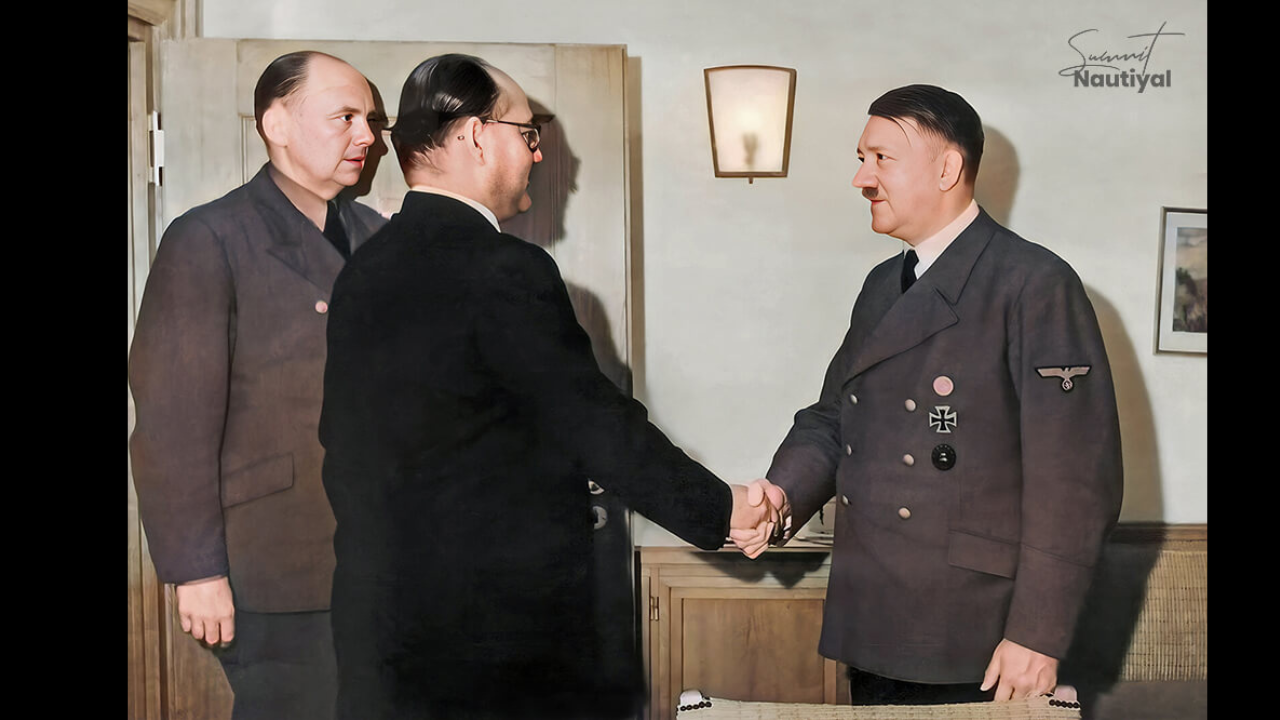The legacy of Subhash Chandra Bose, one of India’s most iconic freedom fighters, often sparks debate in the UK due to his controversial alliance with Nazi Germany and Imperial Japan during World War II. While his association with the Axis powers may appear problematic from a British perspective, it is essential to understand Bose’s motivations within the historical context of India’s struggle for independence. For Britons, revisiting these events with nuance and objectivity could foster a more balanced understanding of history.
Bose’s Context: A Fight for Freedom, Not Ideology
Subhash Chandra Bose’s relationship with Nazi Germany was not rooted in ideological alignment but in pragmatism. For Bose, the singular goal was India’s liberation from British colonial rule—a regime that exploited and oppressed millions for over two centuries. Faced with the unyielding British Empire, Bose believed that aligning with Britain’s adversaries would provide India with the strategic support it needed to achieve independence.
It is crucial to note that Bose consistently distanced himself from Nazi ideology. His alliance with Germany was transactional, born out of a shared enemy rather than shared values. This distinction is often overlooked when evaluating his actions through a modern moral lens.
The British Hypocrisy on Alliances
Criticizing Bose for aligning with Nazi Germany while ignoring Britain’s own compromises during the same period reflects a double standard.
- Appeasement of Hitler: Before World War II, Britain itself pursued a policy of appeasement, allowing Hitler to remilitarize and expand unchecked. Figures like Neville Chamberlain made significant concessions to Nazi Germany, believing it would preserve peace.
- Colonial Alliances: While condemning Bose’s choices, it is worth remembering that Britain maintained exploitative colonial alliances and suppressed independence movements globally during the same era.
If Britain could justify its pragmatic dealings with problematic powers for its national interest, why should Bose’s actions be viewed any differently when his aim was to liberate his country?
The Role of the Indian National Army (INA)
Bose’s creation of the Indian National Army (INA) was a revolutionary step. Comprising Indian soldiers who sought to overthrow British rule, the INA aimed to inspire Indians to reclaim their sovereignty. While the INA ultimately failed to achieve military success, it ignited a wave of nationalist sentiment in India.
Bose’s efforts highlighted the lengths to which Indian freedom fighters had to go to challenge British imperialism, an empire that often dismissed nonviolent methods and met peaceful protests with brutal suppression.
A Broader Perspective on World War II
For Britain, World War II was a fight for survival against Nazi Germany. For Bose and many Indians, it was an opportunity to exploit Britain’s vulnerability to achieve long-denied freedom. To many Indians, the empire’s war efforts were not altruistic but a means of protecting its colonial interests.
India’s involvement in the war was not entirely voluntary; millions of Indian soldiers fought under the British flag, often without a choice. Meanwhile, the Bengal famine of 1943, exacerbated by British policies, claimed the lives of millions of Indians even as the empire focused on the war effort. This historical backdrop explains why Bose and many Indians sought alternative methods to challenge British rule, even if it meant unconventional alliances.
Why Britons Should Reevaluate Their View
- A Colonial Legacy of Exploitation: Before judging Bose’s actions, Britons should consider the historical injustices of colonial rule, which forced Indian leaders into desperate measures. Bose’s alliance with the Axis powers was a response to British oppression, not an endorsement of fascism.
- Contextual Understanding: Bose’s actions were those of a nationalist leader fighting for his country’s freedom under extraordinary circumstances. Evaluating his choices without understanding the desperation of colonial subjugation risks oversimplifying history.
- Moving Beyond a Colonial Lens: As Britain reckons with its colonial past, it is essential to recognize that anti-colonial leaders like Bose operated in a world shaped by imperialism. For Indians, Bose is a symbol of defiance and sacrifice, not an ideologue aligned with fascism.
Subhash Chandra Bose’s alliance with Nazi Germany was a complex and controversial chapter in the history of India’s independence movement. However, Britons should recognize that his actions were born out of a desperate struggle against an oppressive colonial regime, not out of ideological alignment with fascism. Moving beyond this fixation can foster a more nuanced understanding of history, helping Britain and India engage in meaningful dialogue about their shared past and the enduring impact of colonialism.
It is time to view Bose not as a controversial figure through a colonial lens but as a nationalist leader who fought for his people’s freedom under extraordinary circumstances.

